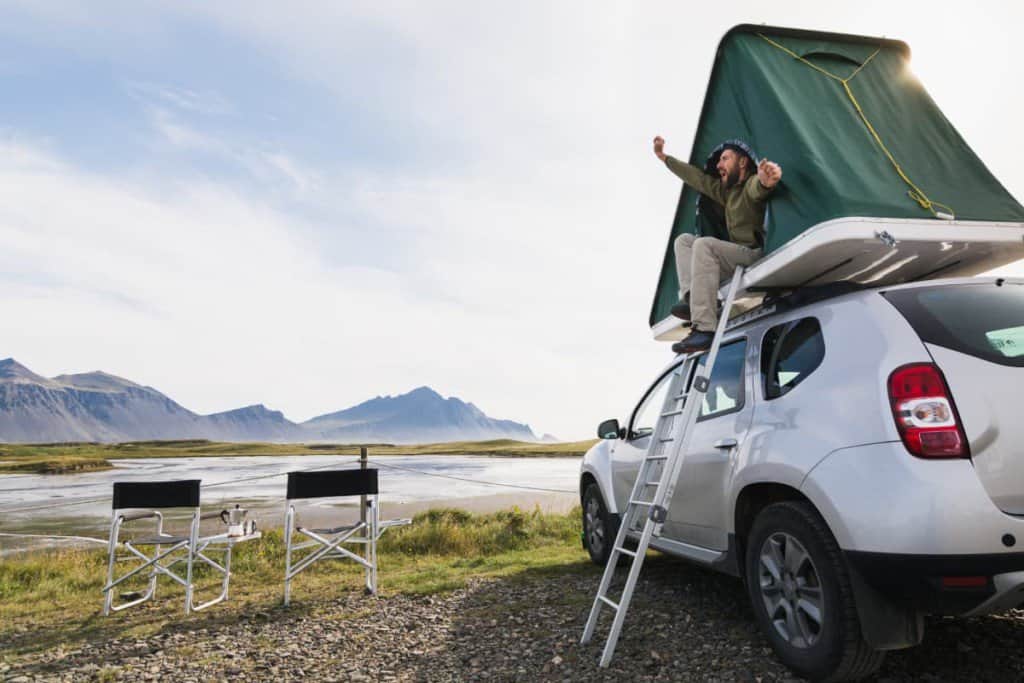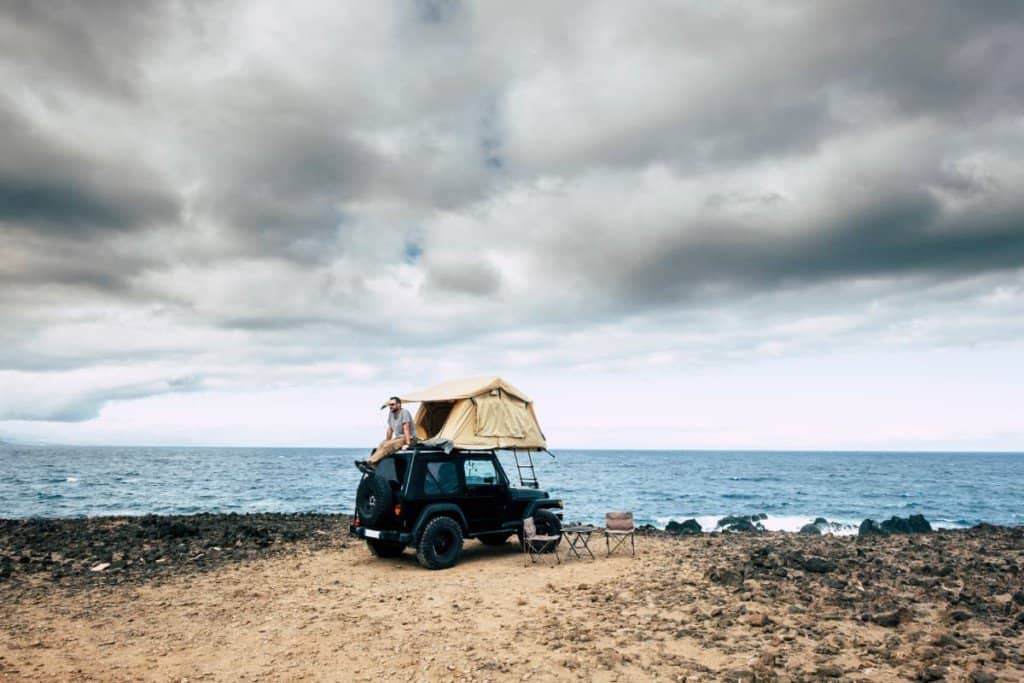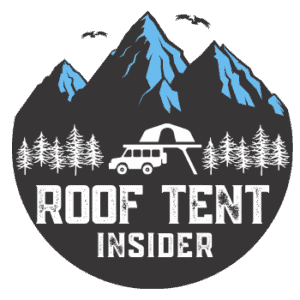Traveling to remote destinations off the beaten track can be exciting. You’ll see things most tourists don’t and experience cultures and lifestyles unknown to your peers. One of the best ways to live this adventure is overlanding—but is it safe?
Overlanding isn’t the safest way to travel. It involves risks, and you could get in trouble if you’re ill-prepared. You should research your route carefully and respect local customs and laws. You should also have the right gear, knowledge, and skills to complete a safe trip.
In this article, I explain why overlanding is a riskier travel mode. I also list tips to keep yourself safer and share my most recommended gear for a trouble-free trip.

Is Overlanding a Safe Way To Travel?
Tourists are often a target for crime, and while overlanding, it can be challenging not to look like one. This mode of travel can be risky, but it isn’t any less safe than others. If you prepare and take precautions, your trip will go well. Here are some of the risks you’re taking while overlanding:
Overlanding Has a Higher Risk of Motor Vehicle Accidents
Overlanding requires extensive time on the road—so your chances of being in a motor vehicle accident are likely higher. These potential hazards are even more likely when driving over unfamiliar terrain in a foreign land.
Therefore, you should always maintain your vehicle to prevent failure while driving and stay vigilant for locals who might be impatient. If you’re traveling to a foreign country, I suggest getting clued up on their traffic laws too.
Overlanding Can Make You a Crime Target
Criminals in some countries see tourists as wealthy and easy to steal from, especially where there’s a big gap between upper and lower-class citizens. Although you’ll visit remote locations, you’ll still have to drive through city centers or shop at local spots.

However vigilant you may be about your surroundings—you may find yourself in the wrong neighborhood in an unfamiliar town. There is truth to the adage of safety in numbers; when overlanding, you forgo much of that security.
Overlanding Can Leave You Stuck or Lost
Overlanding to remote locations carries the risk of getting lost or being stuck with no assistance. If you’re in a spot with no reception and your vehicle breaks down, you’ll have to fix it yourself if you can’t find help. You can easily get lost without proper map knowledge or a working GPS.
Overlanding Could Lead to Injuries or Death
The goal of overlanding is to spend time in places less explored which could leave you vulnerable to dangerous animals, extreme weather conditions, or diseases. Since these areas aren’t tourist hot spots, nature is often left undisturbed, and you might be ill-prepared to face locally prevalent diseases. You could also face extreme temperatures you’re not used to in foreign climates.
If you’re a beginner, I recommend my other guide on overlanding tips for beginners. In this guide, you’ll learn six tips on preparing for overlading and what to do in emergencies. If you’re still fairly new to overlanding, read my guide on overlanding for beginners which includes tips, how to prepare, and recommend items for your adventures.
9 Tips for Staying Safe While Overlanding
Where you’re traveling plays a significant role in what you’ll need to do to stay safe. You should consider common diseases, crime rates, and natural elements of a region to help you prepare.
These are my top safety suggestions no matter where you travel:
- Never carry a large amount of cash. If you’re traveling with a group, divide the money between everyone.
- Keep valuables like travel documents, jewelry, and cameras away from public scrutiny. Make copies of your passport, visa, vehicle registration, and credit card info and store them in a portable safe.
- Don’t look lost if you’re visiting busy areas. Determine where you want to go and how to get there before leaving your vehicle. Try to dress like the locals and keep a low profile.
- Be aware of your surroundings at all times. Petty criminals can spot distracted people from a mile away! Avoid crowded attractions like markets and bazaars. If you suspect someone is following you, try a detour, look for police officials, or take a break in a busy coffee shop.
- Travel in a group whenever possible. If you don’t have friends or family who like overlanding, find a tour group to join. There’s always safety in numbers.
- Respect local religions, customs, and laws. Before visiting foreign regions, you should learn about these and ensure you abide by dress codes, gestures, or norms.
- Be aware of regional diseases. Some countries require proof of vaccination, but other remote destinations could be breeding areas for unknown ailments. Try to keep out of areas where local diseases are prevalent.
- Share your itinerary with people at home. If friends or family know where you’ll be, they can seek help if you haven’t made contact in a day or two. Remember to also keep in touch.
- Listen to the locals. They’ll have the best safety tips for their area. Take their advice seriously if they tell you to stay away from certain areas, not go out at night, or be cautious in your behavior or dress.
Choose The Best Overlanding Gear To Make Your Trip Safer
The best camping accessories can make overlanding comfortable, but having the right gear on hand could minimize the risk of landing in a dangerous situation.
You can use my checklist below to ensure you have the gear to help you stay safer:
- First Aid Kit
- Solar Lights
- Solar Charging Points
- Vehicle Repair Kit
- Updated Map
- Off-Road Navigation System
- Remote Communication Devices
- Fuel Storage
- Axe
- Fire Extinguisher
- Extra Water Bottles
- Bug out Bag
- Medication for local diseases
Depending on your journey, you’ll need specific safety items like mosquito nets, a shovel, or off-road tires. I suggest getting in touch with others who’ve traveled to where you’re going or talking to locals on a community forum for the best guidance.
Overlanding need not be an expensive affair, and you can travel safely and well on a budget. If you would like to earn more about overlanding on a budget, check out my article.
Final Advice
Your knowledge about where you’re traveling is equally important as your gear. Before hitting the road, research the regions you want to visit. Doing this will give you the best direction. Some areas might indicate that you’ll need extra equipment, like a portable safety box, while others advise avoiding markets.
Overlanding isn’t only the horror story you might have heard. It can be a fun and adventurous way to travel. You’ll be fine if you keep local rules in mind, steer clear from risky areas, and have your safety gear on hand when driving to remote locations.
